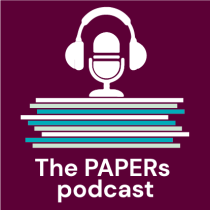Posts by the author
The PAPERs Podcast
0 comments
0 comments
0 comments
0 comments
0 comments
0 comments
0 comments
0 comments
0 comments
LISTEN AND SUBSCRIBE

Click on the arrow to open subcategories
-
- Artificial Intelligence
- Assessment
- CBME
- Cognition
- Curriculum
- Entrustable Professional Activities
- Feedback
- Formative assessment
- Health Advocacy
- Health care record
- Identity
- Leadership
- Learning
- Learning environment
- Open education resources
- PBL
- Perfectionism
- Professional Identity Formation
- Professionalism
- Scholarship
- Student affairs
- Student perspective
- Synthesis: Scoping
- Teaching
- Uncertainty tolerance
- Workplace-based assessment
MEET OUR HOSTS

Photo: Erik Cronberg
Read a presentation of our fabulous hosts


0 comments